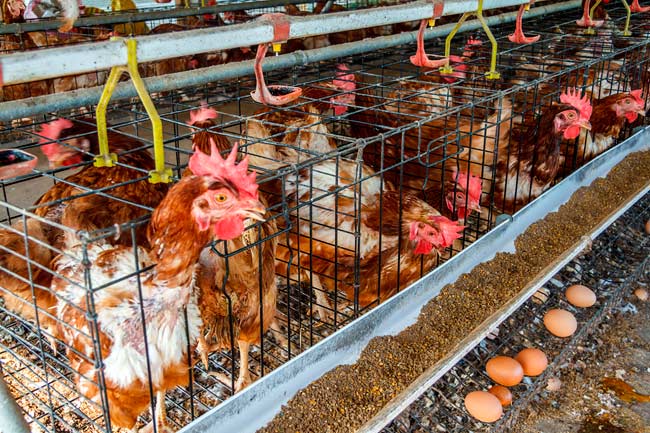- Make It Yourself Lavender Heart-Shaped Bath Bombs!
- 20 Things You Never Knew About “Down There”
- 12 Best Foods For Those Suffering From Arthritis Pain
- 12 Personal Hygiene Mistakes Almost Everyone Makes (Mom Never Told You About #4!)
- 15 Medicinal Plants And Herbs From The Cherokee People
- 12 Mind-Blowing Benefits Of Drinking Coconut Water During Pregnancy
- 12 Outstanding Winter Foods That Won’t Fatten You Up Like A Christmas Turkey
The Latest American Crisis Everyone Will Be Talking About

Photo credit: bigstock.com
If you live in Texas, you have already seen the signs in grocery stores and convenience stores all over town: “Egg Purchases Limited to 3 Cartons per Customer,” or “Eggs are Not for Commercial Sale.” HEB, which has more than 350 supermarkets in the Texas area and many more locations throughout the country, is one of the largest supermarket chain in the state and , has begun to ration egg sales.
Although HEB and other markets are stating that this is a temporary disruption in the egg supply due to the Avian Flu, what they aren’t telling you is that — as of today — more than 46 million chickens and turkeys have been killed, according to the Department of Agriculture.
This has been a terrible few months for egg farmers and poultry producers in the United States. Like other parts of the world, this deadly bird flu has spread like wildfire across the U.S. since its initial outbreak in April, escalating to the point of a near national crisis and resulting in egg rationing in some areas.
What is bad for the goose is apparently bad for the gander as well. This a terrible blow to egg producers is going to be passed on to consumers as well. The wholesale price of eggs in liquid form (which is the way most large food manufacturers purchase eggs) has gone from a mere $0.63 per dozen to more than $1.50 per dozen since this outbreak occurred. This increase in egg prices will affect everything from bread, pasta and cakes to anything else that is made from eggs. This is even worse news for those who serve eggs such as fast food restaurants, cafes and cafeterias. In fact, this egg crisis has lead one Texas-based food chain to announce that it was shortening the hours that it would serve breakfast in order to limit egg purchases. Whataburger stated on their Facebook page that their egg supplier could not meet their demand for eggs.
Consumers are paying more for eggs as well. In case you haven’t noticed, egg prices have doubled in the past three months. Egg prices do go up and down, so it’s possible that some consumers haven’t noticed the rise in prices, but egg rationing is something everyone notices.
Continue to Page 2

Photo credit: bigstock.com
If you think this doesn’t affect you because you don’t live in Texas, think again. If egg rationing hasn’t hit your store yet, it will. The efforts to control this current outbreak of bird flu has, so far, have been unsuccessful, which means common sense should tell everyone that there is not going to be an influx of fresh eggs coming anytime soon. As of right now, HEB is limiting their sales to three dozen, but if this flu continues unabated, don’t be surprised to see this number decrease over the summer months.
The US Department of Agriculture has stated that about 80 percent of the birds killed in this outbreak were egg-laying hens. This has the egg industry on its knees.
SEE ALSO: Are Backyard Chickens Mostly Immune to Bird Flu?
This is one more reason why you should consider keeping your own backyard chickens. You don’t need a rooster for the hens to lay eggs, so you don’t need to worry about your neighbors complaining about the noise. Depending on the size of your family and how many eggs you typically consume each day, most people find that just two or three hens will supply them all the eggs they can eat. Three hens will give you about 21 eggs each week, since most hens lay approximately one egg each day. Chickens require very little space and very little care. If you have a home with a yard, your chickens will happily remove every bug from your garden and then some, and in return, supply you with clean, fresh, organic eggs. Even if you live in a large city and have limited space, you can build a coop that will allow them to walk freely within their enclosure and eat all the fruits, vegetables, seeds and scratch that you provide.
Check your local ordinances before purchasing your chickens. Most cities allow hens but not roosters within city limits. There are numerous sites online that can explain how you can set up your chicken coop, which chickens are the best for laying eggs and how to properly care for your hens.
Once you start eating fresh, organic eggs from your own hens, you will realize just how much taste (not to mention nutrition) you have been missing. You will never go back to store bought eggs ever again.
References:
































